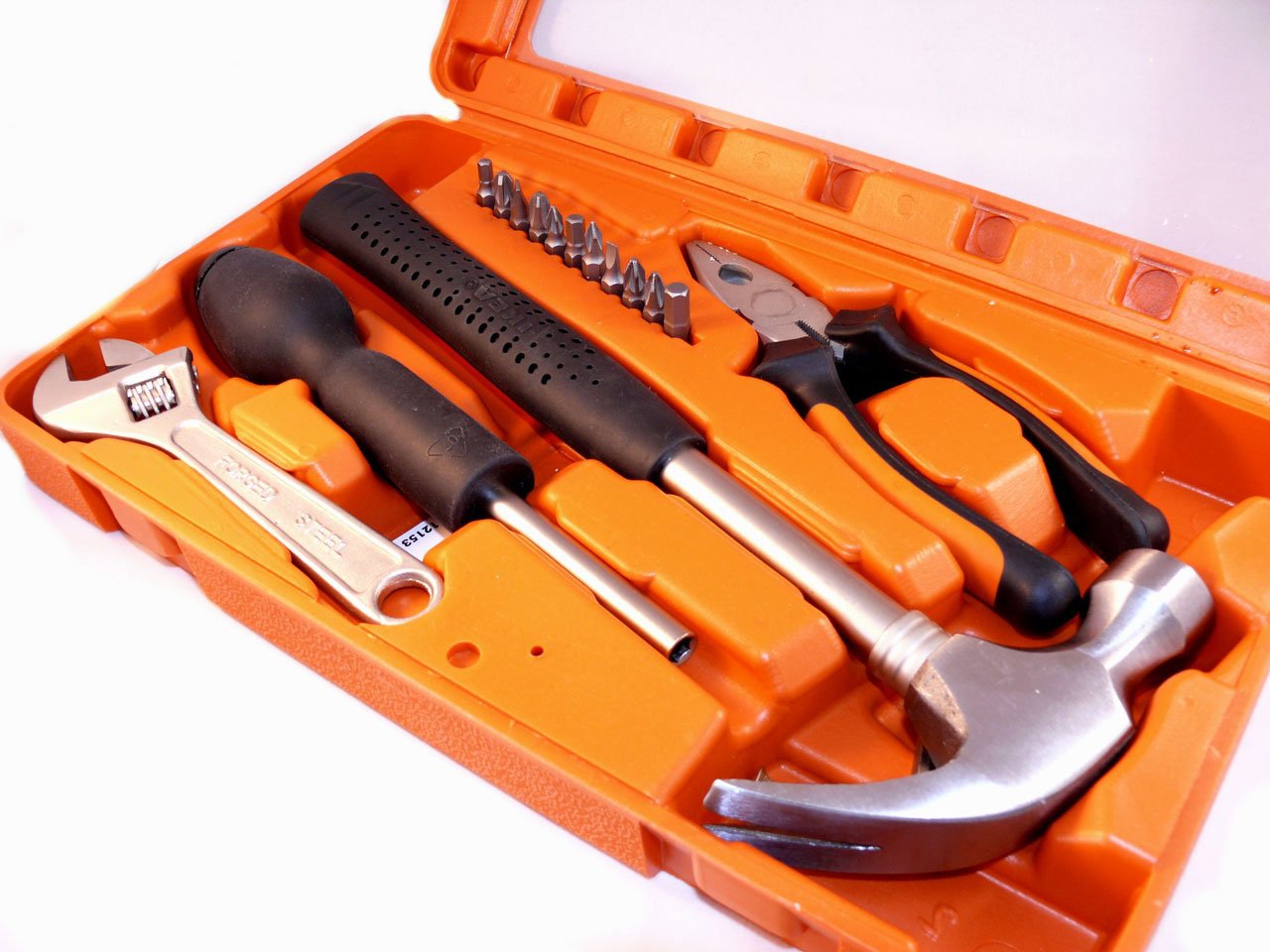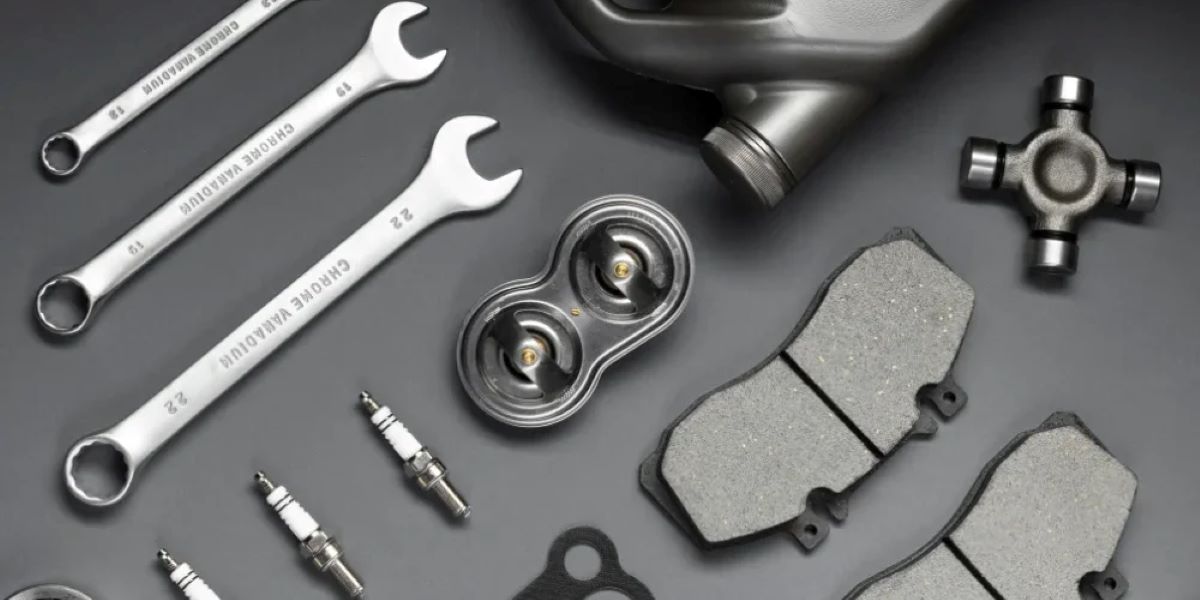For both car enthusiasts and everyday drivers, equipping your garage with the right tools is essential to simplify routine maintenance and tackle unexpected repairs effectively.
Whether you’re dealing with a sudden breakdown or performing regular upkeep, having the proper tools can save time and make the job much easier.
This guide provides a detailed list of essential tools every car owner should consider, covering everything from basic hand tools to advanced diagnostic equipment.
Basic Hand Tools
Screwdrivers (Flathead and Phillips):
A variety of screwdrivers in different sizes is essential for tasks like removing battery clamps, adjusting mirrors, or replacing headlamps.
Wrench Set:
Wrenches are indispensable for loosening and tightening nuts and bolts. While an adjustable wrench can handle various sizes, having a complete set of combination wrenches (metric and imperial) is ideal.
Pliers:
Three key types of pliers should be part of your toolkit: standard slip-joint pliers for general use, needle-nose pliers for accessing tight spaces, and locking pliers (Vise-Grips) for securing parts firmly.
Ratchet and Socket Set:
A good-quality ratchet and socket set is invaluable for efficiently removing bolts, particularly in confined spaces.
Allen Wrenches/Hex Keys:
With modern vehicles frequently using hex screws, these tools are indispensable.
Torque Wrench:
To ensure nuts and bolts are tightened to the manufacturer’s specifications, a torque wrench is necessary. This is especially important for engine work and securing wheel lug nuts.
Oil Filter Wrench:
One of the most common maintenance tasks is changing the oil. An oil filter wrench simplifies the process, making it cleaner and more efficient.
Specialty Tools
Spark Plug Socket:
This specially designed socket, equipped with a rubber insert, allows you to remove and install spark plugs without causing damage.
Tire Pressure Gauge:
Maintaining the correct tire pressure is vital for safety, fuel efficiency, and tire longevity. A digital or dial tire pressure gauge is a must-have.
Multimeter:
For diagnosing electrical issues, a multimeter is essential. It measures voltage, current, and resistance, helping identify faults in your vehicle’s electrical system.
OBD II Scanner:
Modern vehicles feature an onboard diagnostics system. An OBD II scanner connects to your car’s OBD port, reads diagnostic trouble codes (DTCs), and aids in troubleshooting problems.

Advanced Diagnostic Equipment
Battery Tester and Charger:
A battery tester evaluates the health of your battery, while a charger keeps it in optimal condition, especially for cars driven infrequently.
Timing Light:
This tool checks the ignition timing of your engine, ensuring peak performance.
Compression Tester:
A compression tester diagnoses engine issues, such as problems with piston rings, valves, or the cylinder head.
Vacuum Pressure Gauge:
This device helps identify various issues, from engine vacuum leaks to exhaust system problems.
Safety and Protective Gear
Mechanic’s Gloves:
Protect your hands from grease, oil, and potential injuries like cuts or burns.
Safety Glasses:
Eye protection is crucial when working on a vehicle, especially when dealing with fluids or flying debris.
Ear Protection:
Some tools, such as pneumatic devices like impact wrenches, generate loud noise that can damage hearing over time.
Organizational Tools
Toolbox or Tool Cart:
Organized tools are easier to find and maintain. A sturdy toolbox or rolling tool cart ensures accessibility and prolongs the life of your tools.
Work Light/Headlamp:
Proper lighting is essential, especially when working in dark or hard-to-see areas under the hood or the car.
Creeper:
For under-car work, a creeper provides a comfortable, mobile platform for maneuvering while you work.
Building a well-rounded garage toolkit takes time, but it’s a worthwhile investment. The right tools not only save time and money but also ensure that maintenance is performed correctly and safely.
Whether you’re just starting to learn about car maintenance or are an experienced mechanic, these tools will help keep your vehicle in optimal condition and road-ready.
Investing in high-quality tools that last a lifetime is wise, as they can significantly reduce the need for costly professional services. Additionally, the satisfaction of completing repairs yourself is incredibly rewarding.
Remember, taking care of your tools is just as important as owning them. Proper maintenance will ensure your tools remain reliable and ready for use, helping you keep your vehicle in top shape for years to come.

